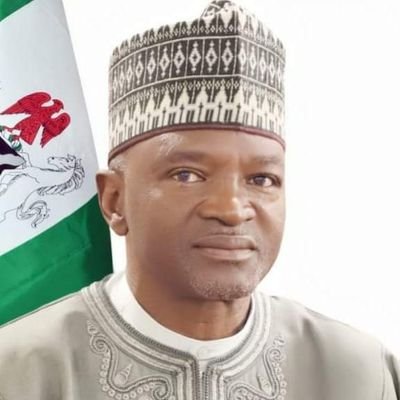The Federal Government has pledged support to other ECOWAS member states to develop appropriate mechanisms to strengthen enforcement of biodiversity law and mobilize means of implementation towards the developed biodiversity action plans.
The Minister of Environment, Dr Mahmood Abubakar, made the disclosure during a two-day Webinar meeting with the 15 countries of the Economic Commission of West Africa States (ECOWAS) in Lagos on Monday.
The theme of the Webinar was “ECOWAS Regional Consultation Workshop on Post-2020 Global Biodiversity Framework to Strengthening the Africa Position Ahead of the OEWG-3 Meeting.
Abubakar said that Government would provide the required support in ensuring continuous coordination of this sub-regional consultations on biodiversity while promoting strong regional collaboration among parties towards achieving the Post-2020 Global Biodiversity Framework.
He said that the Ministry of Environment would continue to work with development partners by participating in global and regional alliances to strengthen its effort at achieving a robust implementation action plan for biodiversity.
According to him, we encourage all parties to also participate in biodiversity alliance that would help in achieving the country’s biodiversity targets.
“We are all aware that the Post-2020 Global Biodiversity Framework is a stepping stone towards the 2050 Vision of “Living in harmony with nature” and must be agreed by all parties to the Biodiversity Convention.
” It remains a singular framework that will put the world back on track of biodiversity restoration, recovery and replenishment, if we all agree and build on the strength of our political will to implement those targets and action.
” In line with the theme of this consultation “Strengthening Africa’s Position Ahead of OEWG-3”, there is need for a sub-regional coordination that will prioritise the African goals and aspiration of a sustainable development and economic growth towards 2030.
“There is also need to recognise biodiversity conservation as a key benefit to the continent and does not jeopardise the future of our children’s generation, which is the main reason for this consultation.
” The African continent is experiencing catastrophic biodiversity loss resulting from human-induced threats arising from unsustainable management practices,” Abubakar said.
He said that one of the African sub-region mostly impacted by the biodiversity loss was West Africa, having witnessed substantial economic loss.
The minister said that biodiversities losses were becoming irreversible with the rate at which it was being decimated, habitat converted or degraded, deforestations across the sub-region was among the highest in the world, increased uncontrolled farmland expansion, illegal wildlife trade, etc.
He explained that the livelihood of West Africans was being threatened daily due to unsustainable practices, strong biodiversity policy and laws but weak enforcement, lack of environmental awareness, weak political will for sustaining biodiversity conservation gains, uncoordinated sub-regional effort, among others.
Abubakar said that these challenges mentioned were being exacerbated by climate change impacts and regional, trans-boundary insurgency and crisis associated in-part to these losses.
He said that in addressing these multifaceted issues of biodiversity loss, the Federal Government of Nigeria, in 2019 reviewed its National Forest Policy as a national framework to improve forest cover and support livelihood of people in the country.
The minister said that this policy was a working tool for National Biodiversity Strategic Action Plans targeted at delivering biodiversity conservation goals.
He added that Forest and other ecosystems such as wetlands remained a significant pillar of support for biodiversity conservation and there should be a concerted effort toward improving, protecting, and restoring all degraded ecosystems.
The African Director, World Wide Fund for Nature, Madam Alice Ruhweza, said that Africa was endowed with unique ecosystem both religious and traditional knowledge.
Ruhweza said that African country were benefiting a lot from nature, adding that the world is facing climate change emergency and lose of wildlife.
According to her, this stood at 60 per cent and have put the world in a track in achieving the aims of Sustainable Development Goals (SDG).
“Now, we have COVID-19 pandemic, which is giving us an awaking of our broken relationship with nature.
“This pandemic is likely to see millions of people going back into poverty while Africans are not speared.
“Generally all indicators of our planet are heading towards wrong direction, while scientists had warned us to keep contact with, forest, ocean biodiversity.
“The post 2020 Diversity Framework which is the reason of our meeting provides us with the last window of opportunity to return to our past sustainability.
” This framework must be ambitious and must be inspired by all to most and reverse lost of nature,” Ruhweza said.
In his own comment, the Chairman. Nigerian Conversation Foundation (NCF), Dr Muhtari Aminu-Kano, said that the change in climate and lost of biodiversity had created developmental problems in the ECOWAS region.
Aminu-Kano said that the Climate Change had agreement in 2015, adding that there was hope to also reach biodiversity agreement in 2021.
Aminu-Kano said that the meeting had giving them hope in the sub region, adding that political and public engagement were necessary in achieving the ECOWAS Biodiversity Framework.
Aminu-Kano commended the support by the Federal Government to the foundation, adding that the meeting hope for an agreement that would be implemented.
He pledged to collaborate and work with other colleagues in ECOWAS countries and that they would take the queue from the political leaders and translate to the grassroots.
Aminu-Kano said that government response would help implementation of the framework in strengthening African position.
Also speaking, the Deputy in Charge of Programme, United Nations Development Programmes (UNDP) Mr Lealem Berhanu, said that 60 to 70 per cent of African Countries relied on agricultural and natural resources for their livelihood.
He said that 80 per cent of human deities provided by plant as well as 80 per cent of people’s living in rural communities in West Africa, relied on traditional plant based medicine Healthcare.
Berhanu said that Africa was endowed with numerous natural resources, adding that implementation of biodiversity Framework would help in creating wealth and addressing poverty in the countries.



